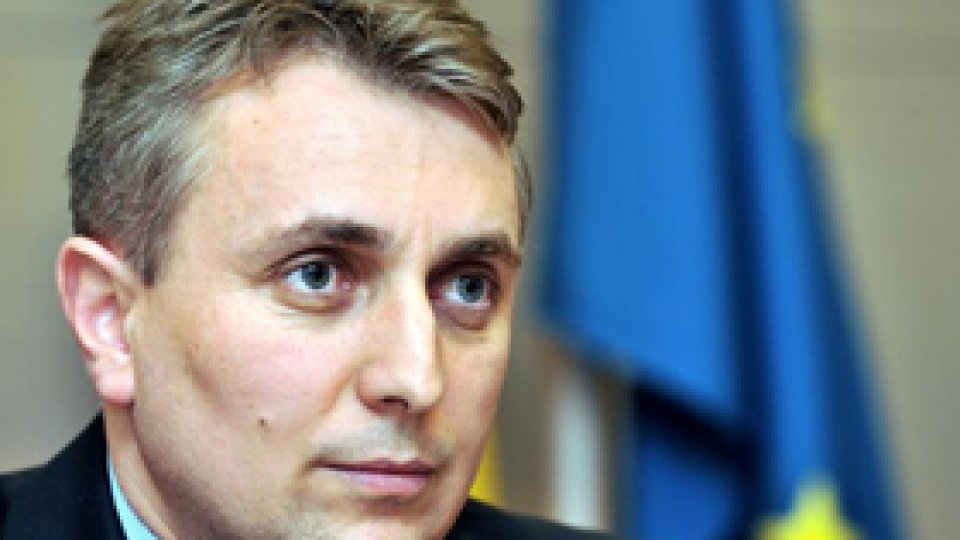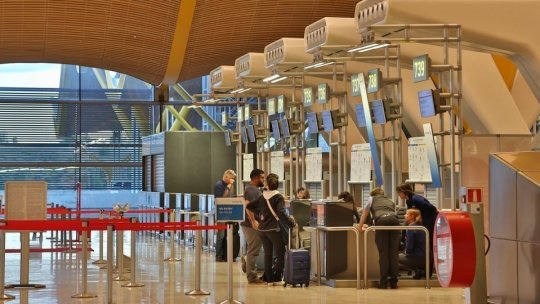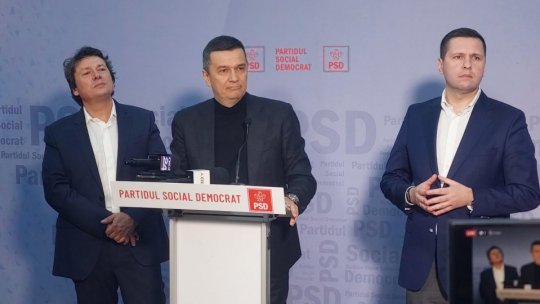The consumers “could change the electric energy providers”
The draft law regarding the liberalization the electric energy market provides the elimination of the established price for the household consumers until 2017 but also the possibility of changing the provider.

Articol de Beatrice Brăileanu, 17 Martie 2012, 10:58
The government has approved Friday the draft law regarding the electric energy, which includes measures referring to liberalization of profile market.
According to the economy minister, Lucian Bode, the draft law has been divided in five categories that target the separation of the production and transporting operations, the renouncing at the regulated tariffs for final consumers, the independence of the National Energy Regulatory Authority (ANRE), the consumers’ protection regarding electric energy and the alimentation safety with electric energy.
In addition , the draft law provides that Transelectrica and Transgaz not to be anymore subordinated to the economy minister, following to be subordinated to other ministries.
Also, the draft provides that the president and the vice-president ANRE to be invested by the head of state at the Prime Minister’s proposal.
Presently, ANRE functions as subordinate to the Prime Minister.
The vulnerable consumers
According to the draft law , a settlement committee of disputes between the participants at the electric energy market and customers will be established.
The committee will establish both the categories of vulnerable clients and some facilities for them.
The vulnerable consumers due to age, healthiness or precarious financial situation will beneficiate from social protection measures or prohibition of disconnection established by law.
The system of penalties for contraventions will also be harsh, the bills could reach until 10 percent of the business cipher of the economic agents, also announced the economy minister.
For the household consumers, the process of liberalization will take place in ten steps, from July 2013 until December 2017.
According to editor of Radio Romania Actualităţi, Angela Bârgăoan, another important modification consists in the possibility of the household consumer to change his provider when he is not satisfied by the offered services. If this draft law will be approved by the Parliament, the unsatisfied client could present at the office where he pays his bill and could ask the change of his provider.
The obligation of the transport authority of energy is that in three weeks from the request to produce this change.
In situations of major imbalances between the request and the offer and the moment when will be discovered obvious malfunctions of the market, ANRE could intervene and could limit the excessive growth of prices or block these prices for a certain period determined of at most six months.
The electricity tariffs “should decrease”
The liberal deputy Relu Fenechiu, member of the industries committee, sustains that normally, once with the liberalization of the energy market, the electricity tariffs should decrease.
He declared that, before the liberalization, the government should realize a study of impact in order to estimate which will be the side effects on the consumers.
“I want to know if the government, today, can tell me which will be the prices for the base energetic utilities, after the liberalization. The big misfortune is that population in Romania has become unable to pay even the minimum of need for subsistence.
A responsible government in Romania should find those solutions that, from the earnings it has, the population could afford to pay those compulsory costs”, declared Relu Fenechiu.
The national legislation from 8 member state “does not respect the EU norms”
The opening of energetic markets for competition is essential for the growing the competitiveness of the EU economy overall, specifies the European Committee.
An effective intern market of energy, interconnected and transparent will offer, also, the consumers the possibility to choose among various companies that provide gas and electric energy and it will guarantee that all providers have the same access to the market.
The directives regarding the electric energy and the gas from the third legislative package within the energy field had to be transported by the member states until March the 3rd 2011.
Until February the 27th 2012, Bulgaria, Cyprus, Spain, Luxemburg, Netherlands, Romania and Slovakia had not informed the Committee regarding the measures of transposition adoption of the European Committee directive.
Therefore, the member states in question had two months at their disposition to answer; in contrary case the Committee can send the causes to the Justice Court of the European Union.
Translated by Alexandra-Diana Mircea
MTTLC, Bucharest University














